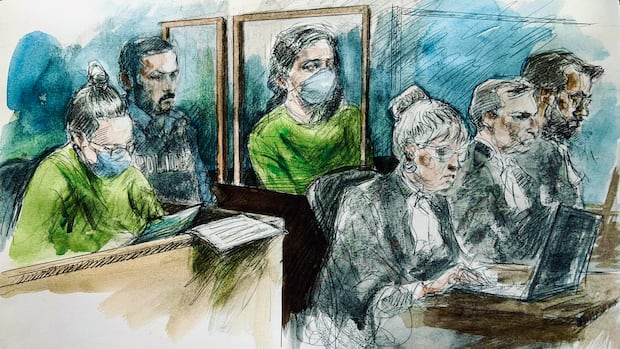
Becky Hamber and Brandy Cooney in court during the trial in Milton, Ontario, highlighting the case's legal proceedings
In a heartbreaking case unfolding in Milton, Ontario, the murder trial of Becky Hamber and Brandy Cooney has brought to light significant oversights by Halton Children's Aid Society (CAS). The trial centers around the death of a 12-year-old boy under their care in Burlington, Ontario, with evidence suggesting that CAS workers failed to record vital information and overlooked red flags regarding the boy's deteriorating health. These revelations, discussed at the courthouse near Main Street East and Ontario Street South, underscore the critical role of child protection agencies in safeguarding vulnerable children.
"Legal accountability is crucial in ensuring child protection agencies fulfill their mandate to safeguard vulnerable children."
Legal Perspective: This underscores the importance of litigation in addressing systemic failures and driving necessary improvements within these agencies.
Key Takeaways
Significant CAS oversights alleged in Burlington, Ontario case
Legal accountability for child protection agencies is crucial
Understanding the role of litigation in addressing systemic failures
What This Means for Ontario Residents
For Ontario residents, this case highlights the crucial accountability of child protection services and the legal implications when failures occur. Families entrusting their loved ones to such services expect diligence and thoroughness, which was tragically absent here. It serves as a reminder that legal mechanisms exist to hold these agencies accountable. These failures not only impact the families involved but also raise broader questions about the oversight and effectiveness of child welfare systems. Understanding your rights and how to pursue legal action when necessary is vital, especially in cases involving potential negligence or misconduct by government agencies.
What You Should Do
Document all interactions with child protection agencies Urgent
Detailed records are essential if pursuing legal action.
Gather any evidence of agency oversight or negligence Urgent
This can include communications, reports, and witness statements.
Consult with a litigation lawyer Urgent
Professional legal advice is crucial to understand your options.
File a complaint with the appropriate oversight body
This can initiate an investigation into the agency's actions.
Consider initiating a lawsuit for negligence
Legal action can hold agencies accountable and drive change.
Your Rights and Options
If you believe a child protection agency has failed in its duties, you have the right to seek legal recourse. This may involve initiating litigation to address any negligence or misconduct. Such actions can compel agencies to improve their practices and prevent future tragedies. Consulting with litigation lawyers can help you understand the legal options available to ensure accountability and justice.
Common Questions Answered
How UL Lawyers Can Help
Facing a situation where child protection services may have failed can be incredibly distressing. At UL Lawyers, we strive to provide compassionate support and expert legal advice. Our experienced team can guide you through the complexities of holding agencies accountable, ensuring your voice is heard, and advocating for necessary changes. Reach out for a free consultation to discuss your concerns and explore legal options without any obligation.
Concerned about child protection agency failures? Contact us to discuss your legal options and ensure accountability.
Important Legal Disclaimer
This article provides general information and does not constitute legal advice. For specific legal guidance, consult with a qualified lawyer. Legal outcomes can vary based on individual circumstances.
Source: CBC | Toronto News